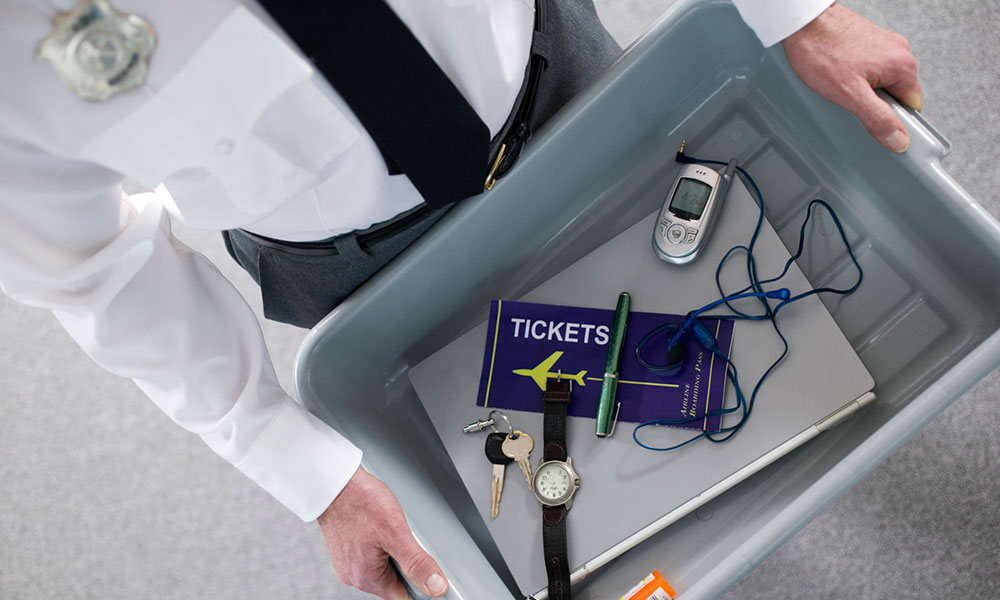
Associations Mixed on TSA’s Air Security Rule Change
While two major groups objected strongly to a change that would allow knives to be carried aboard flights, another suggested the policy would help bring security levels in line with international standards.
Airline security is always a complicated situation, and not everyone is going to be happy with the rules—including passengers and air industry workers.
That seems to be the case with a change the Transportation Security Administration (TSA) announced earlier this week, which drew criticism, but some support, from officials and associations alike. More details:
The TSA’s list of approved styles of knives.The change: On Tuesday, the TSA announced its plan to allow passengers to carry onto planes a number of items that had been banned in the wake of the September 11, 2001, attacks on the Pentagon and World Trade Center. The items soon to be allowed in carry-on baggage include golf clubs, hockey sticks, pool cues, lacrosse sticks, certain styles of novelty baseball bats, and—most notably—a number of knives with blades smaller than 2.36 inches in length and half an inch at the widest point. This drew notice in part because knives were used during the 9/11 attacks; however, the blades used were about 4 inches in length. The types of knives allowed are shown above; no matter the length, the knives cannot have locking or fixed blades. Several other rules—including those involving liquids, which can only be taken onto planes under certain conditions—will remain in place.
It’s as if we didn’t learn anything from 9/11. Flight attendants are going to be sitting ducks.
The negative reaction: Among the groups that have spoken out most passionately about the issue include the Association of Flight Attendants (AFA) and the Federal Law Enforcement Officers Association (FLEOA), which represents air marshals, among others. AFA’s Sara Nelson, appearing on NBC’s Today show, argued that the rule change “cannot stand. [Knives] are a deadly weapon, and they’re unnecessary. It is unnecessary to put these on our aircraft. After September 11, the policy changed, and it changed for a reason.” FLEOA’s George Randall Taylor, who leads the group’s air marshal unit, took a similar stance, telling CNN, “It’s as if we didn’t learn anything from 9/11. Flight attendants are going to be sitting ducks.” The group also released a statement condemning the move.
Pilots indicate support: On the other hand, the Air Line Pilots Association International (ALPAI) argued partly in favor of the change (which it is still researching), saying it would bring U.S. standards to the risk-based security level seen in air travel overseas. “Unfortunately, the reality has been that we’ve had this patchwork of regulations and systems that in some part… have been carried on the shoulders of the airlines,” said ALPAI’s Sean Cassidy, the group’s first vice president, to CNN.
And then there’s this: One former TSA head argues the change doesn’t go far enough. Kip Hawley, who led the agency from 2005 to 2009, told CNN, “They ought to let everything on that is sharp and pointy. Battle axes, machetes … bring anything you want that is pointy and sharp because while you may be able to commit an act of violence, you will not be able to take over the plane. It is as simple as that.” Hawley argued that violent acts can be committed with items already allowed on planes.
What is your take on airline security? Is now the time to loosen carry-on baggage rules? Let us know your thoughts in the comments.
(Creatas/Thinkstock)






Comments